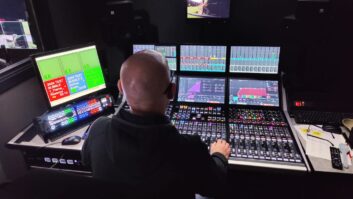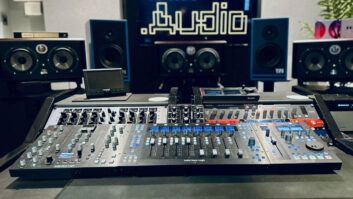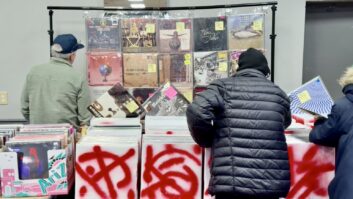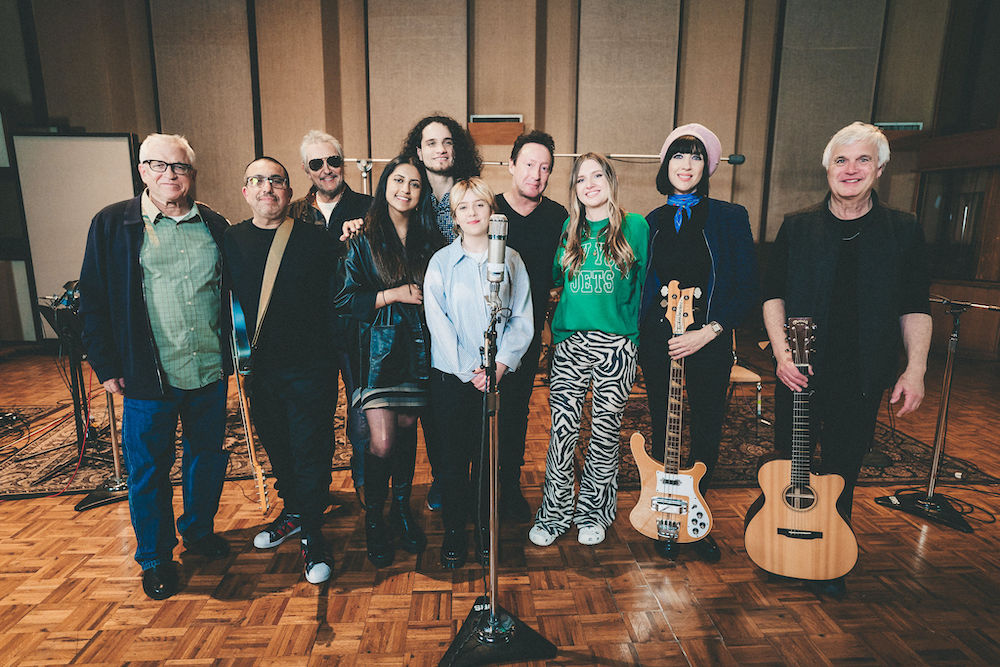
Los Angeles, CA (February 28, 2024)—“The idea of working with Future Youth Records was fabulous because the work that I do is aimed at kids—because as the saying goes, they are our future,” says Julian Lennon of the recent collaboration he and his White Feather Foundation formed early last year with the nonprofit record label to raise funds for the environment.
Future Youth Records, formed in 2012 by drummer Jason Wall, helps young artists produce music that promotes social justice. The organization does this at no cost to the artist, who retains the full rights to their music. Over the past decade, they’ve received demos from more than 23 countries targeting their main initiatives on peace, women’s empowerment, the environment and emotional health.
While Future Youth Records generally records their own artists’ songs, for the Lennon project, they reimagined Lennon’s 1991 “Saltwater” by bringing four of their artists from different countries—three vocalists and one to help with production—to recording sessions at United Studio A in Los Angeles. It was the first time any of the young artists had been in a studio, and as it turned out, that two-day session was one of the final projects at the legendary facility before it closed in April 2023.
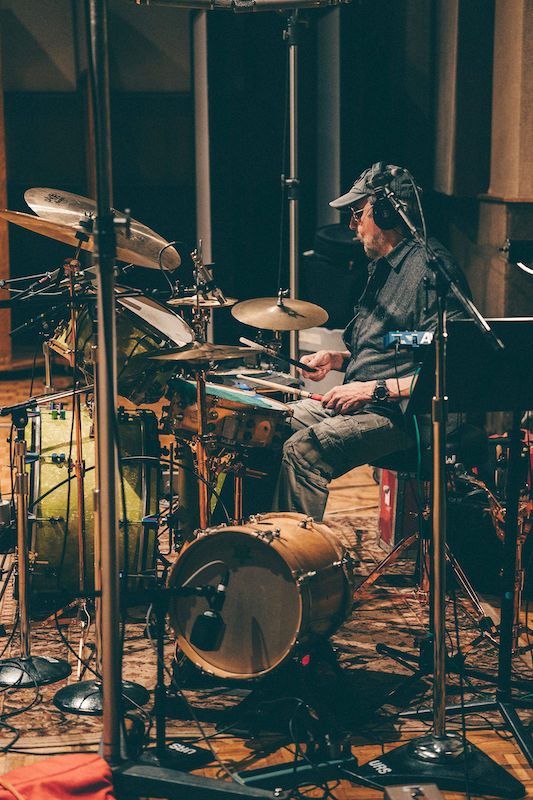
Wall produced the single, with the generous contributions of Jim Keltner on drums, Steve Porcaro on keys, Eva Gardner on bass, and Laurence Juber and Dave Shul on guitars. Willie Samuels, who engineered the track live, says the biggest challenge turned out to be the time constraint. He considered himself fortunate to have United’s famed technologies at the ready. “I think we did all the vocals with an old Telefunken 251 mic through a Manley 2 preamp,” he recalls. “Besides that preamp, everything else was recorded through the Focusrite Console.”
With only two days to capture everything, and no pre-production time together, vocal placement became an early issue. Wall decided right away to have the three female youth artists—Jenna Marie from Ireland, Sereena from London, and Tausha from Canada, as well as two more recorded remotely—sing through the entire song to decide whose voices worked best in which parts. The two remote artists, meanwhile, one in India and the other in the UK, were working in home studios with different signal chains and room characteristics.
“I had complete takes from the three girls who were present and the two who weren’t that I had to comp together,” he says simply.
BRINGING THE PIECES TOGETHER
Samuels has become used to rolling with the punches in his work with FYR. His friendship with Wall dates back prior to the formation of the nonprofit, when the two were asked to create a songwriting program for the Bay Area’s Mission Girls. At the end of what turned into a 16-week program, aided by friends Matt “Dr. Fink,” A-Plus, Thia Megia, Marcel East and Mo Pleasure, Wall learned that songwriting had helped a 13-year-old participant overcome thoughts of suicide, solidifying his belief in the power of music.
Wall soon began to solicit demos from around the world, offering access to professionals who could help them with songwriting and recording, including engineers like Samuels and Matt Jacobson. When the pandemic struck, everything turned remote, and FYR began hosting contests.
Industry friends such as Kenny Aronoff, J.R. Robinson, Ash Soan, Kathy Valentine, Justin Derrico and Jack Douglas chose songs to include on various EPs, some even helping produce and play on projects. “We wanted the productions to be outstanding, and that meant getting the best players we could so the artists can hear what their songs sound like with some of the best musicians,” Wall explains.
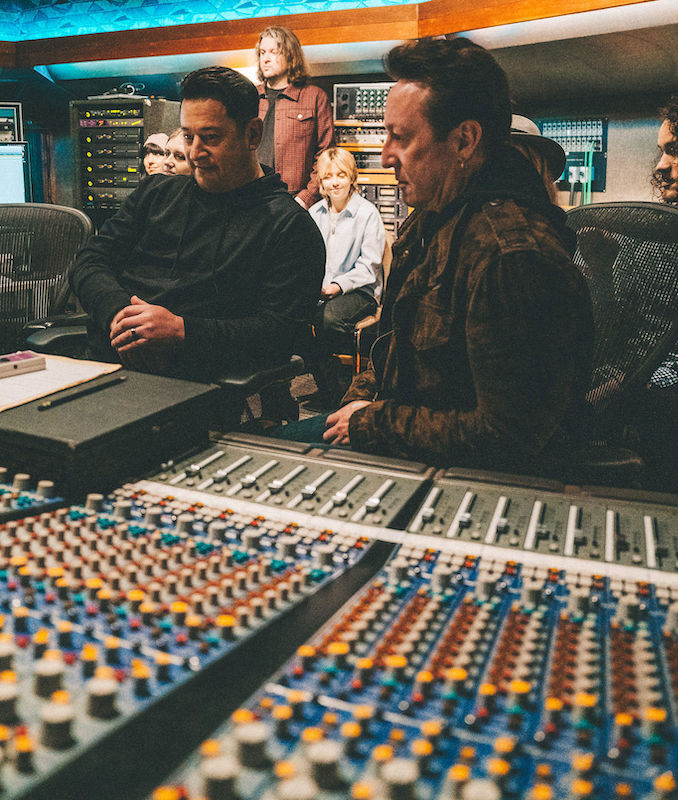
For Samuels, who grew up playing drums, working with Keltner on the Lennon track was a particular highlight. For the record, he used an AKG C24 on the overheads, a Neumann Fet 47 on the bass drum, Beyer 201 on the snare, AKG C12As on the toms, and a pair of Neumann M49s for room mics.
TAUSHA AND THE BOXMASTERS
In March of last year, Billy Bob Thornton got involved with FYR for an emotional healthrelated project, a personal struggle he has been very open about in his own life. Thornton and his Boxmasters bandmate J.D. Andrew worked with FYR Canadian artist Tausha to produce her song “As I Ever Was” at Peppertree Hill Studios on Thornton’s west San Fernando Valley property.
For Tausha’s vocals, they used a reproduction of a Telefunken 251 by Stam Engineering out of Chile into a Neve 1073 mic pre, then a Summit compressor, on into Pro Tools. Guitars were recorded with a Royer 121 ribbon mic through a Bassman; for bass guitar, Andrew used an Ampeg B-15 miked with a Warm Audio Fet 47. On the drum overheads, he used Coles 4038s, with Rode ribbon mics on the room, Lauten mics on the snare and kick, and 421s on the toms. It all went into Pro Tools and was mixed on Thornton’s Trident 80B console.
“I mix analog through the console with faders,” Andrew says. “It’s fun having a console again. Everything feels better putting hands on faders. It’s a much more natural way to mix and record.” The approach on Tausha’s project was no different than how they work on a Boxmasters’ song, Andrew notes. First, she laid down a scratch vocal with Andrew’s acoustic guitar, and then recorded a piano track. Once all were satisfied, she left the room while Andrew tracked bass and guitars and Thornton played drums. Then she returned to overdub her vocals. “That’s how we do all our projects—and usually by the end of the day, we’re done,” Andrew says with a laugh. The Boxmasters do work quickly, and will release four projects between December 2023 and the end of 2024.
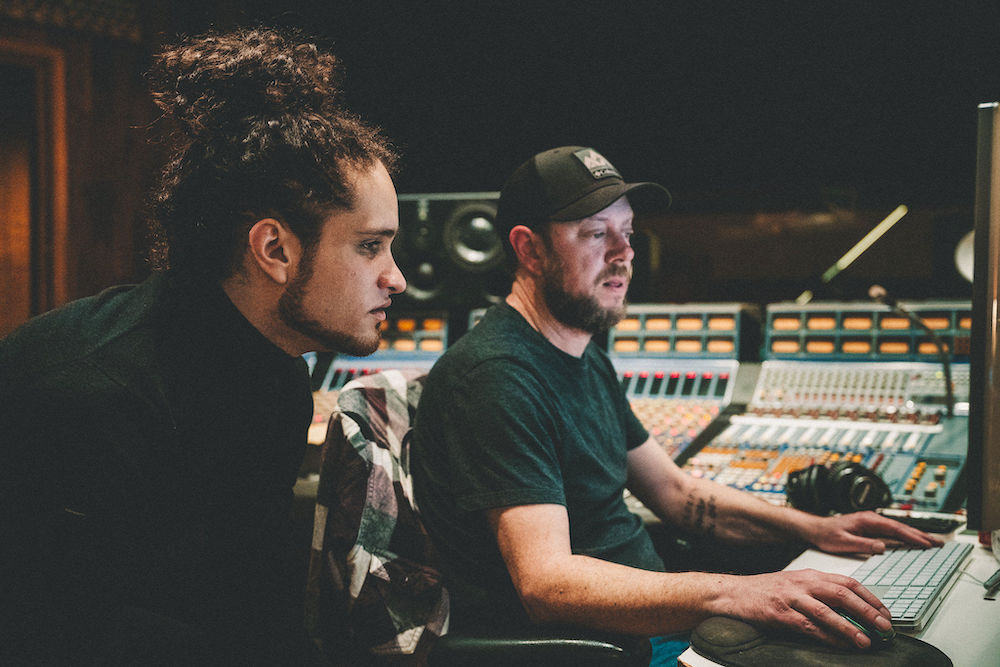
Tausha says that the collaboration brought a whole new perspective to her work, including a fondness for country-tinged rock and a penchant for humor. She cites one particular Boxmasters song, “I’ll Give You a Ring,” and the line “I’ll give you a ring when you give me back my balls” as making a huge impression. “It was interesting; in working with them and absorbing their vibe, I learned how to lighten up,” Tausha says. “I learned to be in the moment with the feeling.”
Thornton says that he found the experience very gratifying: “It’s knowing that you’re not only giving wisdom to a young artist, but also doing something with a song that has meaning to it. If it’s as satisfying to the producer as it is to the artist, then you’re in business, because I had as much fun and got as much out of it as Tausha did singing her song.”
MORE, WITH STERN AND WALLACE
While “As I Ever Was” had resonated most with Thornton and Andrew, Wall felt strongly about another song Tausha had written for consideration. In September 2023, he took her into Rock Cellar Studios, a private studio in Chatsworth Calif., to cut “How Low Can You Go.” Studio Manager Lauri Reimer helped facilitate legendary players such as Albert Lee, Steve Ferrone, George Doering, Dave Shul, David Chamberlain, Dave Pearlman, and JT Thomas. Tausha, Wall and Mix Lab West’s Michael Stern co-produced, while Stern engineered and Barry Kohan assisted.
Stern says that despite recording drums, guitars and bass live in the studio to Tausha’s pre-recorded vocal demo, and Hammond B3 and piano live at Thomas’ house, with pedal steel and mandolin done remotely, it all worked. Tausha’s vocal was captured with a Neumann TLM 67 mic through a Focusrite ISA 110 preamp into a Drawmer DL241 compressor straight to Pro Tools, bypassing the console. A particular highlight for Stern, he says, was the chance to record Ferrone on drums: “He was such a pro and what a pleasure—the life of the party.”
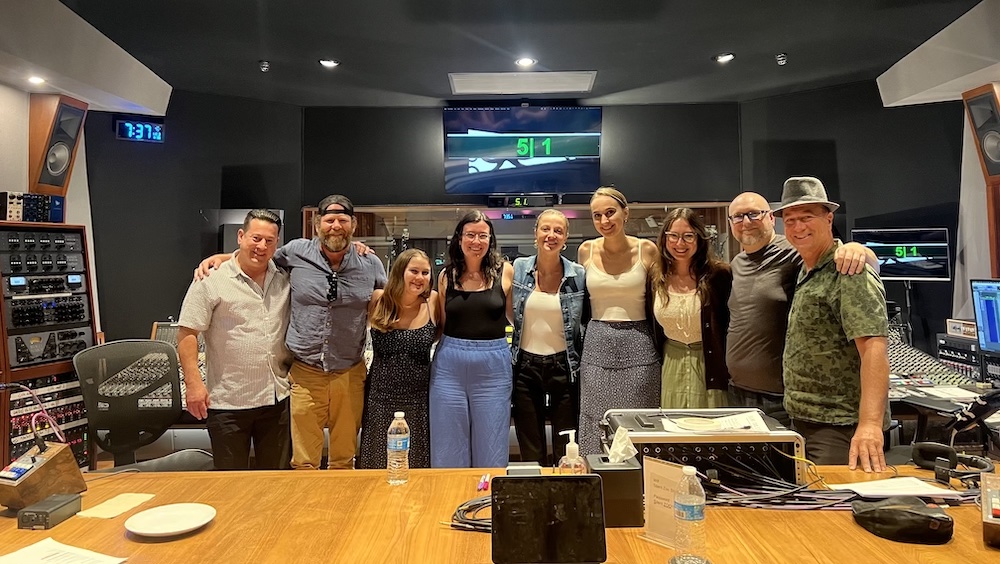
Samuels mixed “How Low Can You Go” at his home studio on a hybrid Pro Tools and Tascam 12A M700 setup, with an Otari MX80 tape machine. “I put all the drums into the analog tape machine and back into the computer. It’s a sound I can never re-create any other way,” he says. “How Low Can You Go” is scheduled for release in early 2024, to be followed by a stunning song and video about gun violence called “Remedy,” which came to FYR through a connection to Chris Sampson, founder of the Popular Music Program at the USC Thornton School of Music.
Two graduating students—Maria McMillan and Kendall Robbins—submitted their final project, a song and video, to FYR for consideration. An avid proponent of FYR, guitarist Dave Shul picked up on the track, and having worked with Matt Wallace on a Michael Franti and Spearhead record, asked the producer to helm the re-cutting of “Remedy” at Silent Zoo Studios. Wallace agreed right away.
“I like things that are socially aware, and Future Youth Records is giving voice to people who aren’t usually heard,” Wallace says. “I think that’s fantastic and a very selfless way to run a record label. Future Youth Records is trying to make a positive impact on how we see the world and also help young artists—and the song is really great too! “I was trying to gently mentor about my experience in the business, but I also had to be open to being mentored by them to see their world view in order to understand what they were trying to accomplish,” he adds. “It’s very easy for the older white man to think he always has the right idea, but that’s not always accurate.”
KEEPING THE FAITH
There were plenty of people who said Wall was crazy working with young people who had no experience, taking them into a major studio with legendary players, with a small budget and time constraints, then putting the song out to the world, but Wall just put up his middle finger and coined the phrase “innovation through limitation.”
“Nuts?” Wall asks. “Hell, yeah! But you gotta own the crazy.”




